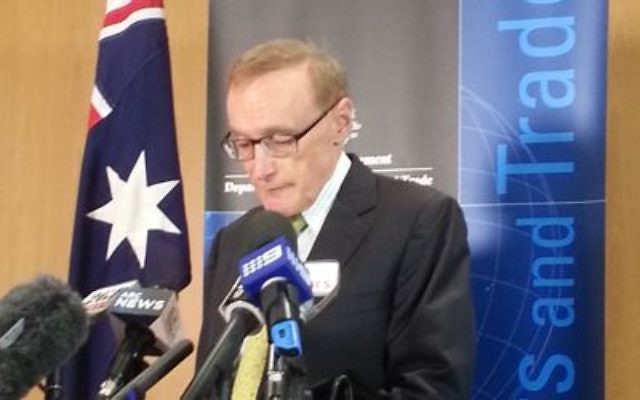Australia to oversee UNSC sanctions on Iran and al-Qaeda
AUSTRALIA has been appointed to chair the UN Security Council’s sanctions committee, where it will play an integral role in meting out penalties to Iran, al-Qaeda and the Taliban.
AUSTRALIA has been appointed to chair the UN Security Council’s sanctions committee, where it will play an integral role in meting out penalties to Iran, al-Qaeda and the Taliban.
Foreign Minister Bob Carr said Australia’s first official duty as a temporary member of the Security Council would be to monitor international compliance with sanctions regimes – such as those imposed on Iran for its development of nuclear weapons – as well as determining which individuals or entities were subject to al-Qaeda or Taliban sanctions.
Executive Council of Australian Jewry’s Peter Wertheim described Australia’s appointment as a “welcome development”.
“The Australian government has had a commendable record not only of enforcing UN sanctions on both Iran and Syria, but also of imposing autonomous sanctions that go beyond those mandated by the UN.
Wertheim added that Australia would be “well placed to stiffen the resolve of the UN to toughen the sanctions regimes against these criminal regimes, and against terrorist organisations like al-Qaeda and the Taliban, and to ensure that the sanctions are enforced”.
When quizzed about how the new role would affect Australia’s relationship with Israel, Carr said only: “It means we’re in charge of advising on sanctions that are already in place as a result of international law – that is decisions of the Security Council.
“The decision to apply them and what they contain is there as a result of Security Council resolutions. Our job is to see that they’re being appropriately enforced.”
Carr also said a renewed push for an international arms-trade treaty at the UN was on Australia’s global security agenda for 2013.
“An arms-trade treaty would improve the efficiency of UN sanctions by reducing the flow of conventional weapons to terrorists.
“Each day there are around 2000 deaths in conflicts potentially fuelled by illegally traded arms,” Carr said.
Wertheim said it was “heartening that the Australian government intends to urge the UN to pursue measures to crack down on illegal arms trafficking in order to reduce the flow of weapons to terrorists”.
“In the case of Iran, effective sanctions may be the last hope for avoiding armed conflict and massive bloodshed. The new responsibility on Australia’s shoulders will be a heavy one,” he added.
Carr: Grand Mufti’s Hamas meeting okay
Foreign Minister Bob Carr dismissed suggestions a recent visit to Gaza by Australia’s Grand Mufti Ibrahim Abu Mohamed to meet with senior Hamas officials was in breach of Australian law.
“We as a government don’t have dealings with Hamas, and we urge Hamas to begin recognising the reality of Israel and the need to have a settlement in the Middle East based on recognition of Israel, security for Israel, and a Palestinian state,” Carr told The AJN. “That is the language we want to hear emerging from Gaza.”
Carr stressed Hamas must change its tune on Israel in the interests of peace in the Middle East.
“The visit by the Mufti has nothing to do with the Australian government, but we would urge him, we would urge his interlocutors in Gaza, to start talking the language of a two-state solution and of Arab recognition of Israel and commitment to the security of Israel that will enable the creation of the Palestinian state via the component parts of the peace in the Middle East that we all want.”
ADAM KAMIEN AND GARETH NARUNSKY
Foreign Minister Bob Carr addresses the press.


comments